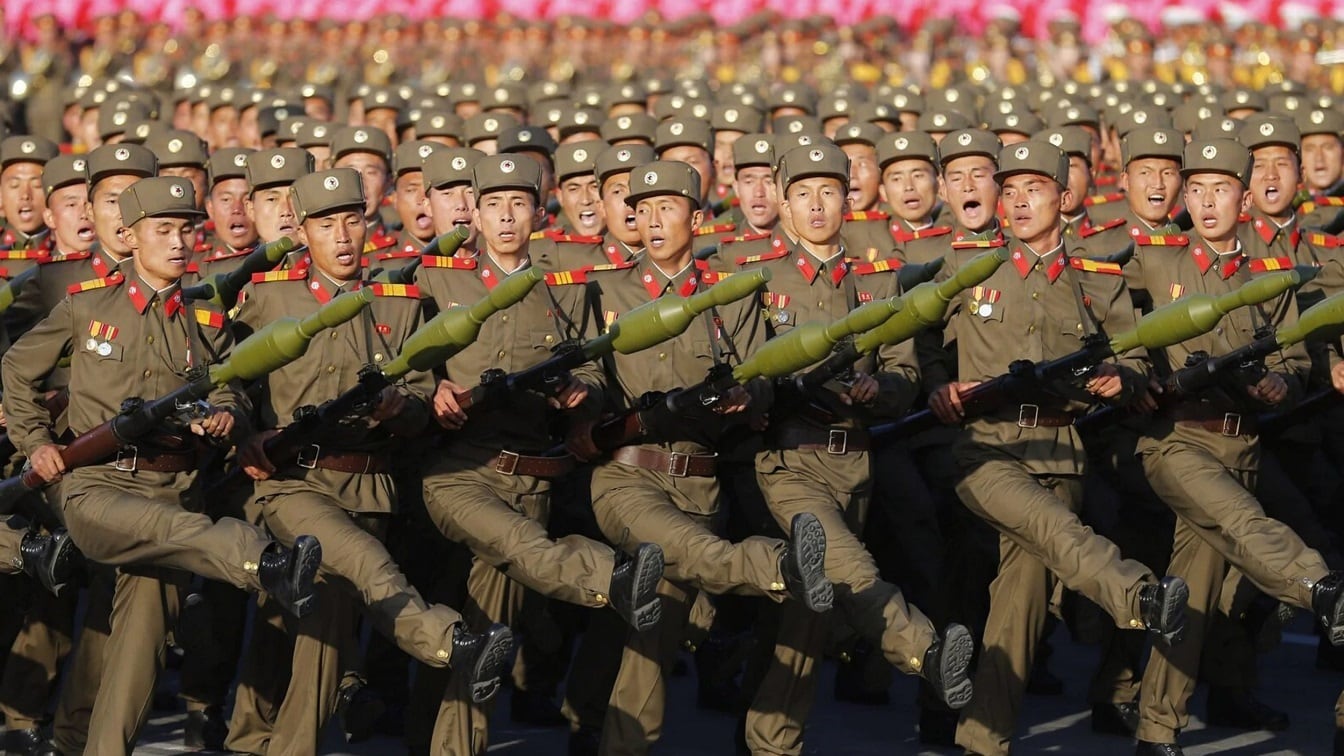Ten years ago, no one would have thought that Russia and China would openly block key actions against North Korea on the UN Panel of Experts. Not only are Russia and China blocking important sanctions initiatives at the UN, both nations now routinely violate sanctions against Pyongyang.
Further, Russia now sources weapons of war from both North Korea and Iran to sustain its invasion of Ukraine.
How It All Started
In June 2022, North Korean diplomats reportedly attended meetings at the Russian Foreign Affairs Ministry where they discussed playing a role in Eastern Ukraine. Pyongyang’s representatives reportedly wanted access to Western weapons seized by Russian troops in the war.
Among other goods in exchange, they offered up manpower. In August 2022, North Korea reportedly selected workers to be dispatched to Eastern Ukraine. Also in August of that year, North Korea reportedly offered Moscow “100,000 volunteers.”
In September 2022, U.S. government officials said that Russia was buying millions of artillery shells and rockets from North Korea. In November, the U.S. government again told the press that North Korea was covertly shipping a significant number of artillery shells to Russia.
John Kirby, the National Security Council spokesman, said he did not know if the munitions had reached Russia at that time. He further added, “Our information indicates that they’re trying to obscure the method of supply by funneling them through other countries in the Middle East and North Africa.” Iran is the likely connection, though Syria is a distinct possibility as well. Iran had already started supplying Russia with drones, so why not ship North Korean munitions through the region into Russia?
Evidence Emerges
In December, imagery was released in the public domain that revealed North Korea is also likely making shipments to Russia using the railway that runs between the two nations starting at the Russia-North Korea border. So it seems that at least for now, the North Koreans are shipping weapons and receiving Russian barter payments via two routes — the Middle East, likely through Iran and/or Syria, and directly through the railway system.
The White House confirmed in December that North Korea had made an initial arms shipment to Russia’s Wagner Group private military corporation, and that more military equipment was to be delivered.
In January 2023, Kirby told the press that North Korea continues to provide ammunition to Russia, and the National Security Council released imagery of Russian rail cars delivering weapons. By February, satellite traffic showed significantly increased rail traffic between North Korea and Russia. North Korea is reportedly receiving Russian oil, gas, and flour in exchange for these initial arms deliveries.
Finally, in August, the U.S. Treasury Department invoked sanctions against several entities and individuals in Russia accused of working with the North Koreans to move arms into Russia for its fight in Ukraine. The individuals and entities sanctioned have reportedly organized the acquisition of over two dozen kinds of weapons and munitions, with goods being used for payment.
On July 20, the U.S. State Department sanctioned several Russian entities, but it also sanctioned a North Korean arms dealer for enabling arms shipments to Wagner Group in Russia. To quote the State Department document, “Yong Hyok Rim (Rim) is designated pursuant to section 1(a)(vi)(B) for having materially assisted, sponsored, or provided financial, material, or technological support for, or goods or services to or in support of, Yevgeniy Viktorovich Prigozhin, a person whose property and interests in property are blocked.
Rim, a North Korea national, has assisted or provided support for Prigozhin and has facilitated shipments of munitions to the Russian Federation.” According to a UN Panel of Experts report in 2019, Rim previously was the deputy head in Syria of the infamous North Korean front company KOMID. Thus the likely Middle East connection.
An Emphasis on Containment
Starting in 2022, the North Koreans and Russians set up arms deals that have already resulted in deliveries of conventional weapons and munitions from North Korea to Russia. These deals remain active, and they are likely to continue for as long as Russia continues its war against Ukraine. North Korea appears to be using both rail transport and maritime means to get its arms and munitions into Russia for use in the ongoing war.
We are thus witnessing a new type of relationship between North Korea and Russia. Moscow provides resources and foodstuffs badly needed in North Korea, and Pyongyang supplies military equipment that Russia continues to need as its forces take heavy casualties and its supply networks continue to struggle.
As this relationship continues to develop, ways to contain these arms transfers must be discussed.
About the Author
Dr. Bruce E. Bechtol, Jr. (Ph.D. Union Institute), is an award-winning professor of political science at Angelo State University and a retired Marine. He was formerly on the faculty at the Marine Corps Command and Staff College (2005–2010) and the Air Command and Staff College (2003–2005). Dr. Bechtol is a 19FortyFive Contributing Editor.

